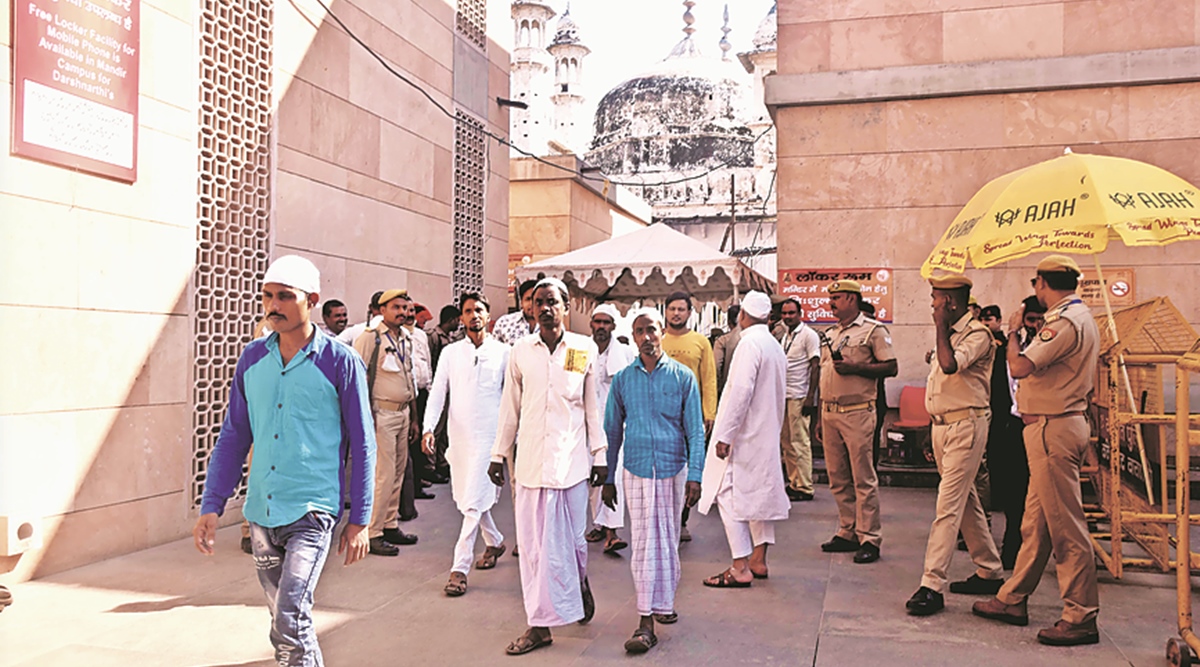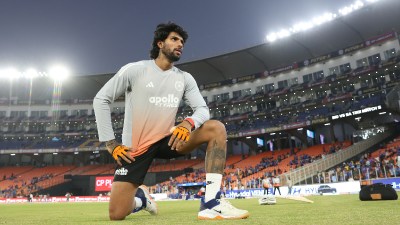Gyanvapi: Citing SC order to secure area, court rejects plea for ‘Shivling’ carbon dating
District Government Counsel (Civil) Mahendra Prasad told The Indian Express, “The court today rejected the petition seeking direction for carbon dating of the ‘Shivling’.”
 Outside the Gyanvapi mosque in Varanasi, Friday. (Express Photo by Anand Singh)
Outside the Gyanvapi mosque in Varanasi, Friday. (Express Photo by Anand Singh)A Varanasi court Friday rejected a plea for carbon dating of what is said to be a Shivling, found during a survey of the Gyanvapi mosque complex earlier this year.
District Government Counsel (Civil) Mahendra Prasad told The Indian Express, “The court today rejected the petition seeking direction for carbon dating of the ‘Shivling’.”
Advocate Akhlaq Ahmed, representing the Anjuman Intezamia Masjid Committee which had objected to the carbon dating plea of the Hindu petitioners, said, “District Judge Dr Ajaya Krishna Vishvesha rejected the petition in view of the order passed by the Supreme Court on May 17, directing the Varanasi District Magistrate to secure the area where a Shivling was claimed to have been found during a videographic survey of the mosque area.”
“The court stated that this would be a violation of the Supreme Court order. The court also mentioned that if such a thing is done, then religious sentiments of people will get hurt,” Ahmed said.
Sudhir Tripathi, representing the petitioners, said, “We will move the Supreme Court and challenge today’s order.”
Earlier, five Hindu women had filed petitions seeking the right to worship Maa Shringar Gauri on the outer wall of the mosque complex located next to the Kashi Vishwanath temple.
While the Hindu side said the mosque was built on the site of a temple, the Muslim side argued that the mosque was built on Wakf premises, and the Places of Worship Act barred changing the character of the mosque.
In April this year, the Civil Judge (Senior Division) allowed a video survey of the mosque complex.
A Shivling was said to have been found in the wazu khana. But the mosque management said it was part of the fountain system of the wazu khana.
On May 20, the Supreme Court, underlining the “complexity of the issues involved in the civil suit”, transferred the Gyanvapi dispute that was pending before the Civil Judge (Senior Division) to the District Judge
On September 12, the District Court dismissed the Anjuman Intezamia Masjid Committee’s challenge to the civil suits, saying that Hindu groups are not barred by the Places of Worship Act and the suits seeking the right to worship inside the Gyanvapi mosque are maintainable.







